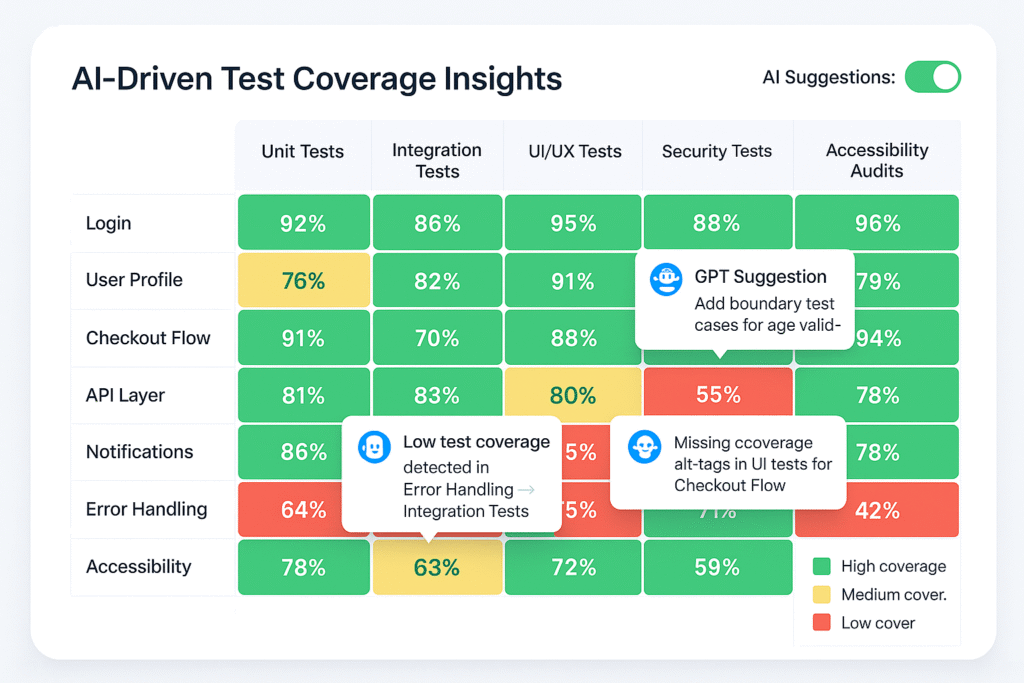This article was adapted from an interview with Galileo’s Chain of Thought podcast. Watch the full episode on YouTube.
At MongoDB, we talk a lot about what it means to be at an inflection point—a moment where you can either maintain the status quo or redefine what’s possible. For my team and for software engineers around the world, that inflection point is here. Now.
Large language models (LLMs), agents, and now model context protocol (MCP) are fundamentally changing not just how we work, but what is possible with technology. So we must adapt; we have to build differently, and be faster. At MongoDB, we’re creating something unique. Something smarter. We’re embracing and exploring everything that AI can do for developers.
And we’re inviting the next generation of engineers to join us in shaping it.
The hidden cost of legacy systems
If you’ve spent any time in enterprise engineering, you know the challenge many organizations face: decades-old systems that are critical to a company’s operations but are held together with duct tape and wishful thinking. The developers who built them have long since moved on. The documentation is missing, outdated, or was never written. The last update was six years ago; some of the dependencies are abandoned. Whether you call it “tech debt” or “care and feeding” or “maintenance”, it consumes a huge fraction of our time and engineering budget—without a clear path forward.
This is the reality many companies face—whether they’re in finance, healthcare, or the public sector—they have no choice but to pour millions of dollars into just keeping these systems afloat.
Or do they?
At MongoDB, we’re building a new kind of engineering capability—one that combines the latest advancements in generative AI with the principles of forward-deployed engineering to help modernize legacy systems at a speed and scale that feels impossible.
What is forward-deployed AI engineering?
Because it’s new, you may not have heard of this role before. It’s a bridge between engineering, consulting, and product development. As an AI Forward Deployed Engineer, you won’t just sit behind the scenes writing code. You’ll be embedded with our customers, working side by side with their teams to solve real-world modernization challenges.
No theory, just hands-on engineering at the sharpest edge of AI innovation.
Your goal? Write software with AI, write software for AI, at speeds you’ve never experienced. In some tasks, we have benchmarked AI as being more than eight hundred times faster than a human being… working in that environment is, I assure you, radically different. You’ll deliver immediate, meaningful impact—whether that’s untangling a million-line code base, modernizing outdated Java frameworks, or helping teams migrate from niche, unsupported languages to modern tech stacks.
MongoDB + AI: Changing the game
One of the most exciting parts of our work is how AI is fundamentally changing what’s possible. In the past, a modernization project like this might take five years and dozens of engineers. Today, with the power of MongoDB and AI, that same work is done in a fraction of the time—sometimes in months, sometimes in weeks—with a much smaller, highly focused team.
We use LLMs and other AI tools to do things like:
-
Add missing documentation to legacy code
-
Write unit tests where none existed
-
Remove outdated frameworks, replacing them with others
-
Analyze and map massive, messy code bases
-
Move between programming languages, frameworks, platforms, ORMs, databases, and front-end technologies.
Let me be clear—none of this is easy, or on autopilot. We augment great engineers with powerful tools so they can focus on the work that matters most, so they can think big, and go far. Combining human expertise with AI capability leads to outcomes no one thought possible.
Why it matters
Modernizing these systems isn’t just about efficiency or cost savings—it’s mission-critical. The legacy platforms power trading systems, healthcare infrastructure, and governmental services that support real people every day. In multiple countries around the world.
Being able to show them a fully functional prototype in weeks, instead of years, is game-changing. It proves what’s possible. It builds momentum. It allows them to rethink how they, too, can structure teams and processes in a world where technology moves faster than ever.
Why join MongoDB?
If you’re an engineer who thrives on autonomy, problem-solving, and building real solutions with immediate impact—and you want to work with AI every day in novel and complex ways— this is your chance. We’re looking for folks from a variety of backgrounds—software development, consulting, product engineering, or technical architecture—who are passionate about learning and applying new technologies, skilled communicators who are excited to partner with customers, and who are comfortable operating in ambiguity.
As part of our Application Modernization function, you will:
-
Work directly with customers and stakeholders
-
Rapidly build solutions that solve meaningful business challenges
-
Operate at the intersection of engineering, product, and consulting
-
Learn and apply cutting-edge AI, inventing both new methodologies and technologies
-
Be part of a small, fast-moving, high-impact team
You might even write a white paper or two.
You’ll also be part of a culture that values leadership at every level. At MongoDB, we believe in making it matter—and this role is designed to make change, not just for our customers, but for the software industry as a whole.
If you’ve ever wanted to be part of a startup within an enterprise, this is your opportunity. We’re building a new way of working — one where experimentation, agility, and ownership are at the core.
Help us build what’s next
At MongoDB, we’re not just modernizing applications—we’re modernizing how software is made.
If that excites you, if you want to shape the future of software development alongside a team of builders, thinkers, and innovators—we’d love to hear from you.
Check out our open roles and join us in redefining what’s possible.
Source: Read More


